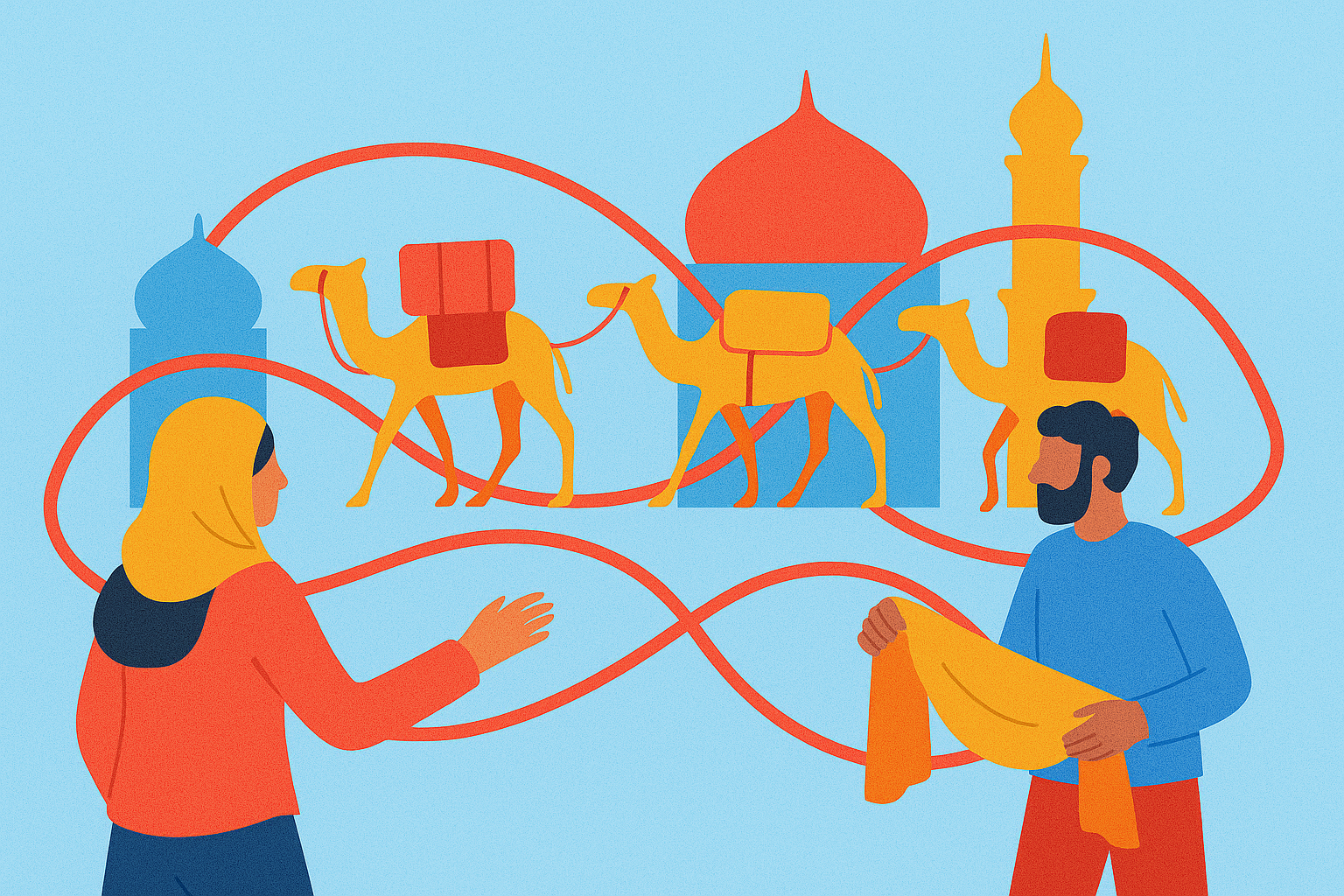Middle East & Central Asia News
LAST UPDATE: May 26, 2025
IMF Forecasts Steady 1% Annual Growth for Gulf Economies Through 2026
The IMF projects a consistent 1% annual GDP growth for Gulf economies through 2026, highlighting the need for economic diversification amid global uncertainties.
Insight
The modest growth forecast underscores the challenges Gulf nations face due to fluctuating oil prices and global economic shifts. It emphasizes the urgency for these countries to diversify their economies beyond oil dependence. Structural reforms and investments in non-oil sectors are crucial to enhance resilience and ensure sustainable growth in the long term.
War-torn Arab countries severely hit by US tariffs, says IMF
The IMF reports that US tariffs have significantly impacted war-torn Arab nations, with some experiencing economic output losses up to 60%.
Insight
The severe economic downturn in conflict-affected Arab countries due to US tariffs highlights their vulnerability to external shocks. These nations often lack diversified economies and robust institutions, making them susceptible to policy changes in major economies. The situation calls for international support and domestic reforms to build economic resilience and reduce dependency on external factors.
Azour: Saudi Arabia Adapts to Global Challenges Thanks to Reforms, Strong Reserves
IMF’s Jihad Azour commends Saudi Arabia’s economic adaptability, attributing it to structural reforms and substantial financial reserves.
Insight
Saudi Arabia’s proactive approach, including Vision 2030 reforms and maintaining strong financial reserves, positions it to better navigate global economic challenges. These measures enhance the country’s ability to absorb shocks, diversify its economy, and reduce reliance on oil revenues. Continued commitment to reform is essential for long-term economic stability and growth.
UAE: Ministry of Finance organises workshop on government balance sheet preparation in collaboration with IMF
The UAE Ministry of Finance, in partnership with the IMF, conducted a workshop to enhance government financial reporting and transparency.
Insight
This initiative reflects the UAE’s commitment to adopting international best practices in public financial management. Improved transparency and accountability in government finances can bolster investor confidence and support sustainable economic development. Such collaborations with international institutions also facilitate knowledge transfer and capacity building within the country’s financial sector.
Turkmenistan, IMF discuss issues of cooperation
Turkmenistan and the IMF engaged in discussions to strengthen cooperation, focusing on economic reforms and integration into the global economy.
Insight
Turkmenistan’s engagement with the IMF indicates a willingness to pursue economic reforms and greater openness. Collaborating with international institutions can provide the country with technical assistance and policy guidance necessary for sustainable development. Embracing such partnerships is a step toward modernizing the economy and enhancing its global integration.
Pakistan: IMF says will continue budget discussions in ‘coming days’ as mission wraps up visit
The IMF mission concluded its visit to Pakistan, agreeing on a preliminary budget blueprint for FY2025-26, with further discussions on revenue, defense, and tariff reforms to continue in the coming days.
Insight
The preliminary agreement indicates progress in Pakistan’s efforts to secure IMF support amid economic challenges. However, unresolved issues, particularly regarding defense spending and revenue generation, highlight the complexities of aligning domestic priorities with IMF expectations. The continuation of discussions suggests that while a foundational understanding exists, critical details remain to be finalized, impacting the timing and structure of the upcoming budget.
Pakistan to set aside excess power for AI data centres
Pakistan’s finance ministry announced plans to allocate 2,000 megawatts of surplus electricity to support AI data centers and crypto mining operations, aiming to capitalize on excess energy capacity.
Insight
This initiative reflects Pakistan’s strategic move to harness its energy surplus for technological advancement and economic diversification. By dedicating resources to AI and crypto sectors, the country seeks to position itself in emerging digital economies. However, the success of this plan depends on infrastructure readiness, regulatory frameworks, and the ability to attract investment in these high-tech industries.
Iran rejects temporary halt on uranium enrichment to secure US nuclear deal
Iran has refused a U.S. proposal to temporarily suspend uranium enrichment for three years as part of nuclear deal negotiations, asserting its right to continue enrichment activities.
Insight
Iran’s steadfast position on uranium enrichment underscores the deep-rooted mistrust and conflicting objectives between Tehran and Washington. The rejection of a temporary halt indicates Iran’s commitment to maintaining its nuclear capabilities, which it claims are for peaceful purposes. This impasse complicates diplomatic efforts, as the U.S. views enrichment as a proliferation risk, and may lead to prolonged negotiations or increased tensions if a compromise isn’t reached.
Iran will survive even if there are no talks with US, president says
Iranian President Masoud Pezeshkian stated that Iran could endure the failure of nuclear negotiations with the U.S., emphasizing the country will not collapse under renewed sanctions.
Insight
President Pezeshkian’s remarks reflect Iran’s resilience narrative, aiming to project strength amid international pressure. By asserting the nation’s ability to withstand sanctions, Iran seeks to bolster domestic morale and signal to the U.S. that it won’t capitulate easily. This stance may be a negotiation tactic to gain leverage but also risks further economic isolation if talks deteriorate without resolution.


